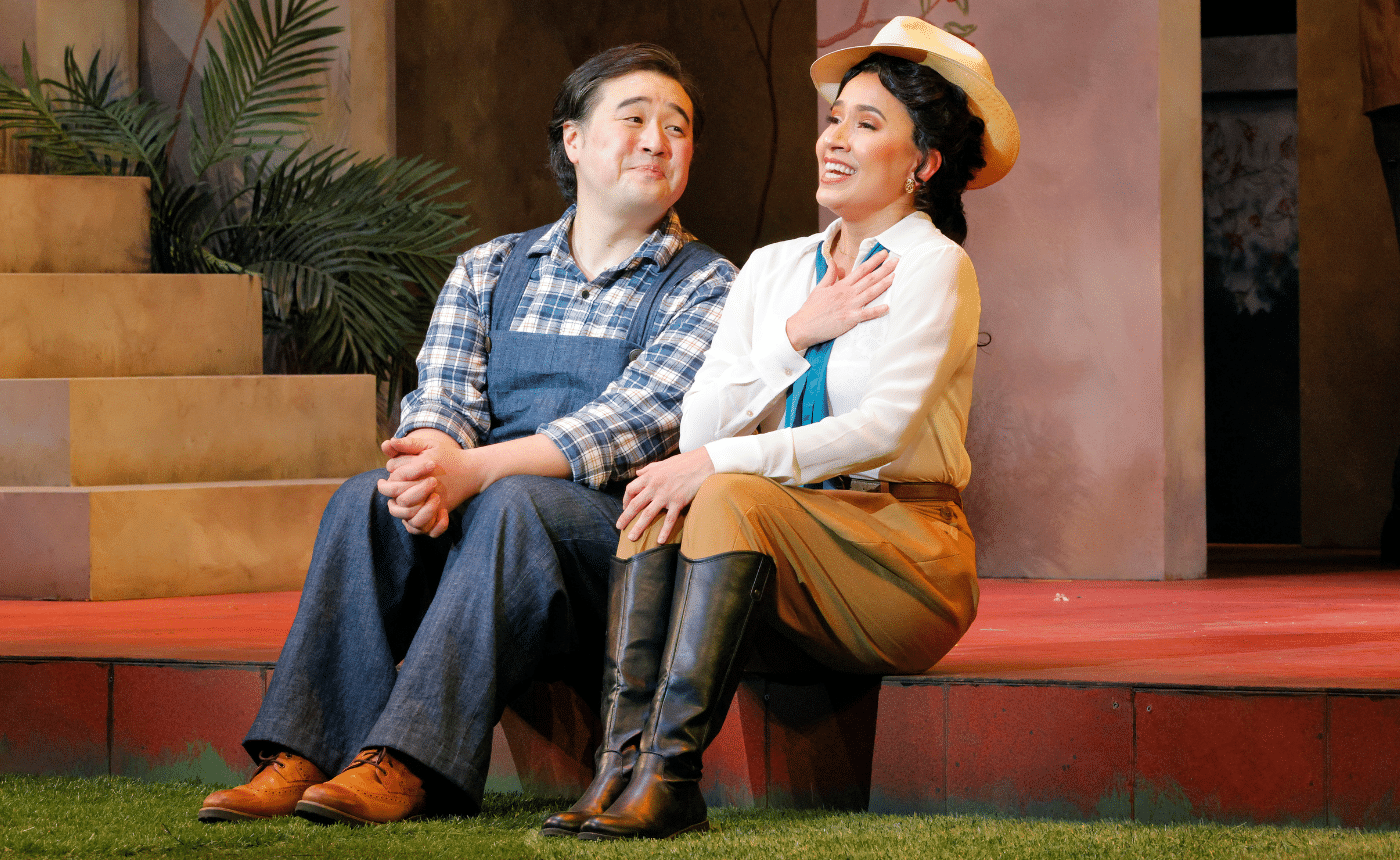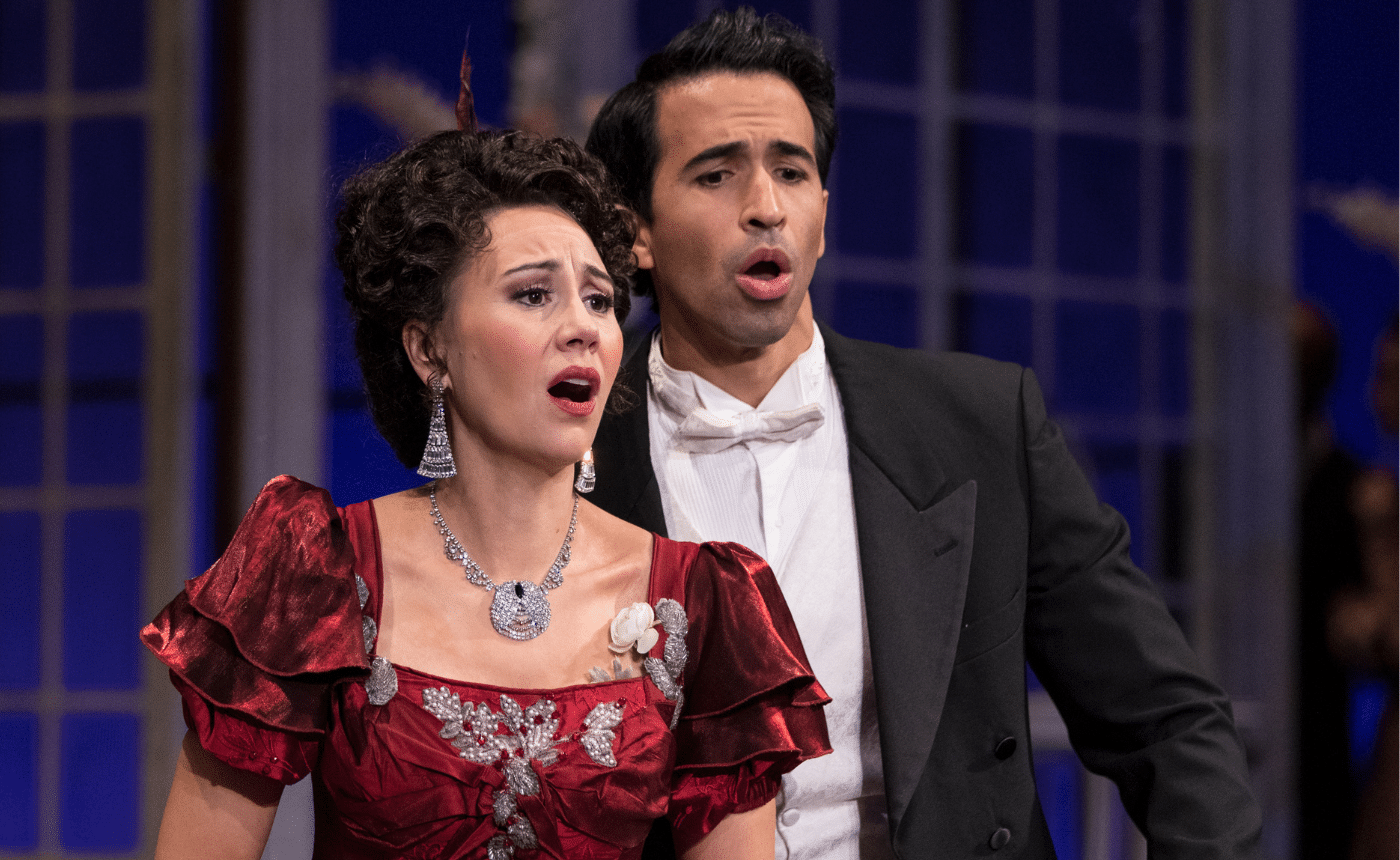Carmen – what an opera! From being universally scorned at its premiere to today being one of the top four most frequently performed operas in America, this work has run the entire gamut. Central to its mystique is its title character, the woman Carmen. Often dismissed as more antagonist than protagonist and “ruiner” of the innocent Don José, perception of this woman is nearly as diverse a debate as that about the pronunciation of potato. Is she evil? A seductress? Fate/death-obsessed (and hence parochial)? Sex addict? Free spirit? Liberated woman/feminist? Victim? Suicide?
It’s rather amazing that a fictional character could spark such debate. Geoges Bizet’s librettists mostly adapted their story from the novella Carmen by Propser Mérimée who in turn was influenced by the narrative poem The Gypsies by Alexander Pushkin. As any quick google search will tell you, the work was commissioned and premiered by the family-friendly Opéra-Comique of Paris despite much protestations from Adolphe de Leuven, the co-administrator of the Opéra-Comique. He eventually resigned in protest. As recalled by one of Carmen’s co-librettists, Ludovic Halévy:
“It was Bizet who, in 1873, had the idea of extracting an opera libretto from the admirable novella of Mérimée…I went to see Leuven and he actually interrupted me after the first sentence. ‘Carmen! Mérimée ‘s Carmen! Isn’t she killed by her lover? And these bandits, gypsies, and girls working in a cigar factory! At the Opéra-Comique! The family theater, the theater of wedding parties … You’ll frighten our audience away. That’s impossible.’ I insisted and explained to Mr. Leuven that ours was a Carmen, to be sure, but a toned-down, softened Carmen, and that we had actually introduced some characters perfectly in keeping with the style of the opéra-comique, especially a young girl of great chastity and innocence. There were indeed gypsies, but of the humorous variety (they really weren’t). And Carmen’s death, the inevitable catastrophe at the end, would be sneaked in somehow at the conclusion of a lively and brilliant act, in broad daylight, on a holiday filled with processions, dances, and gay fanfares. Mr. Leuven acquiesced, but after a prolonged struggle. And when I left his office, he said: ‘Please try not to let her die. Death at the Opéra-Comique. That’s never happened before, do you hear, never. Don’t let her die, I implore you, my dear child.’”
Thankfully, Bizet himself didn’t allow Carmen to become so watered down as to loose its shock value. Its premiere was every bit as scandalous to the Opéra-Comique audience as de Leuven had feared, and was shut down after a mere 48 performances. Indeed, Bizet himself passed away from a sudden heart attack exactly three months after the premiere, convinced that he was an eternal failure. Luckily, the Vienna Opera had committed to produce the opera prior to Bizet’s passing and its production, launched in October 1875, proved to be a huge success. [The Viennese version replaced the spoken dialogue of the French version with sung recitative written in the style of Bizet. The sung version is actually still the most common version performed today. Tonight, you will hear the original French version with spoken dialogue although much of the dialogue has been cut.] It is revered and worshiped by today’s audiences and there are books and books by composers and thinkers singing its praises [Brahms, Tchaikovsky, and Nietzsche each saw over 20 performances of the work. Tchaikovsky foretold that Carmen would become the most popular opera in the world].
It even spawned an entirely new genre of opera. Although such a story might not seem entirely realistic to today’s audiences, to Bizet’s contemporaries, it was entirely too close to home, too real, too current. It spanned an entirely new genre in opera, verismo, i.e. people in the present living normal lives (in contrast to being gods or royalty). In a sense, it was the reality television of the nineteenth century.
The story is essentially this: Don José, an inexperienced and “innocent” soldier from the country meets an exotic gypsy woman, Carmen, who has been disturbing the peace. In order to avoid capture, she seduces Don José and escapes. Through a series of events she is then responsible for his rejection of his naïve fiancé, Micaëla (billed by even the librettist as the antithesis to Carmen), his mutiny against his boss, and his leaving the army to join her band of smugglers. She then gets bored and moves onto the bullfighter Escamillo leading Don José to murder Carmen out of jealousy.
Is it really all her fault though? The feminist music historian Catherine Clement in her book Opera: The Undoing of Women laments Carmen’s tragic death and the death of most other opera heroines as victims of oppression by men. They are helplessly tossed about by the whims of their love objects. All except for Carmen, of course. According to Clement, Carmen must die because she refuses to acquiesce to Don José: “She says no. No again. No! She does not want him, does not love him anymore. He is bleating and he is dangerous, he repeats over and over: ‘There is still time … There is time to save yourself and to save me with you.’ Ah, here is the naked truth: what has to be saved is the man’s image, damaged by pure and simple jealousy, that can bring on all the deaths in the world.”
On the other hand, another scholar, Peter Conrad , attributes her death as a near suicide as a result of her superstitions. Having earlier forecast her death through a game of cards, she resigns herself to her fate, and eggs Don José to kill her. Indeed, some singers play the role so that Carmen walks into Don José’s knife because he is not even man enough to kill her.
Regardless of how in control she is of her fate, the question remains, is she “a sluttish femme fatale who destroyed a decent, upright soldier” or an “honest … and liberated woman murdered by a maternally dominated psychopath” (Rodney Milnes, music critic). The answer, in many ways, lies with Don José via looking closely at the opera’s source, Mérimée’s novella.
At the beginning of the story, Don José is already on the lamb, having killed a man during an argument resulting from a game of paume (hand tennis). He then runs away to Seville to join the army. From the outset, he is not quite so innocent, as he has already killed a man, is hot-tempered, and often acts irrationally. The opera does not mention this detail, although it is alluded to in Don José and Micaëla’s Act I duet: Don José’s mother writes in the letter delivered by Micaëla, “and tell him that his mother dreams of him day and night. She’s pardoned him, and prays he will always do what’s right.” His mother has pardoned him for Murder #1.
Murder #2 is again the result of his temper. After spending a month in jail because he allowed Carmen to escape, Don José kills his superior Zuniga after he orders Don José to stay away from Carmen. Of course in the opera, murder #2 is watered down by the opera’s librettists to Don José temporarily rendering Zuniga unconscious. Either way, Don José is compelled to join Carmen’s band of smugglers. In the novella, it is here that murder #3 occurs: Don José kills a gypsy, Garcia the One-eyed, in an argument over cards. After all this rage and death, it’s no wonder Carmen gets bored! As in the opera, Carmen then moves her affections to a toreador and is murdered by Don José in a jealous rage.
The book certainly gives more insight into the character of Don José and makes his murder of Carmen more of a result of a pattern of emotional overreaction than an out-of-the-blue act of passion by a simple country boy driven to insanity by a devilish gypsy. However it is Mérimée’s own preface that is the most damning statement of all of Carmen: “Woman as a whole is bitter. She possesses but two redeeming moments: one in bed and the other at death.”
Nevertheless, neither character, in both the novella and opera, are truly innocent creatures. Carmen’s murder is not the result of her infidelity, flirtation with, or abuse of Don José. She does not die simply for being a man-eater. It is also not the consequence of Don José’s propensity to kill people when they don’t do what he wants. Perhaps the tragic destiny of both main characters is the result of war, of the brutal battle between the sexes that Nietzsche deems the heart of the opera. He exclaimed the following upon seeing the opera for the twentieth time: “The love whose means is war, whose very essence is the mortal hatred between the sexes! I know no case in which the tragic irony, which constitutes the kernel of love, is expressed with such severity, or in so terrible a formula, as in the last cry of Don José with which the work ends: ‘Yes, it is I who have killed her,/ I — my adored Carmen!’”
What do you think of Carmen? Is she the owner of her fate, the first great opera heroine to take control of her destiny, to speak out against men, or is Don José passionate act simply a result of her constant torment and flirtation? Does she ‘deserve’ her destiny? Decide for yourself while enjoying one of the greatest operas of all time.




